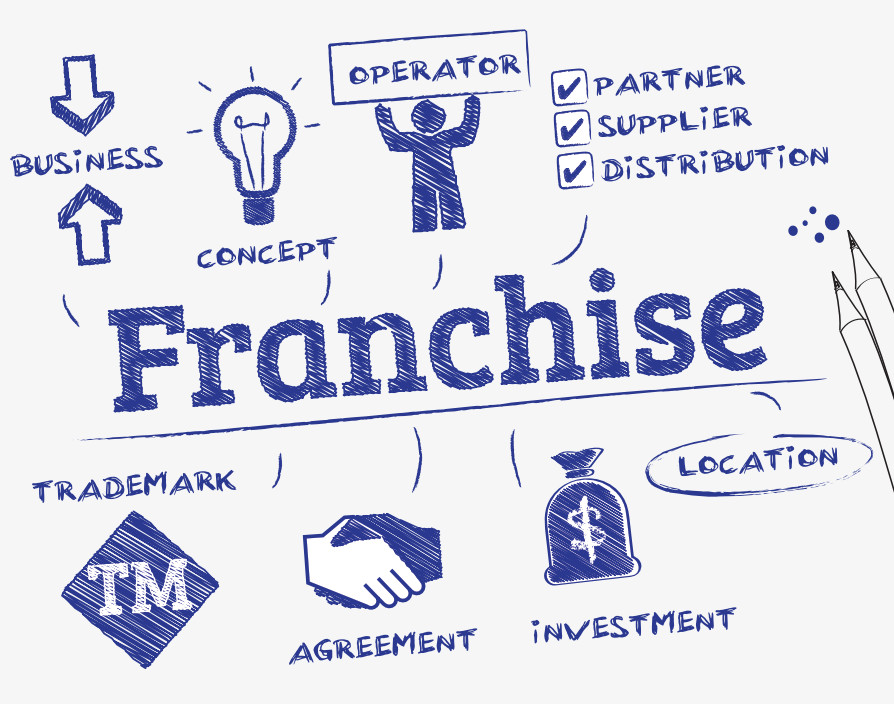To develop a franchise network in the UK you will need to ensure that your brands are registered and protected here.
Registration is vital for the growth of your brand in the UK marketplace – as it grants you the monopoly right to use the brand (subject to payment of renewal fees). This also applies to securing the local domain names for your brand and the registration of designs. Note there is no requirement to register ownership of copyright in the UK.
Run a Pilot
Before selling a franchise to a potential franchisee, you need to prove that someone other than you can follow your systems and run a successful business.
To do this, set up a pilot operation (or preferably two). The pilot operation may be a new business owned by you, or it could be a franchisee who you offer preferential terms to because this exercise will be a learning curve for both of you.
Choose your growth structure wisely
Individual Franchise: This involves you setting up a limited company in the UK and developing the franchise yourself.
Master Franchise: This is appointing a company or individual to develop the network in the territory for you. The master franchisee trains, recruit and supports the franchisees whilst you provide some support and control what the master franchisee does. The master franchisee gets its income generally from franchise fees and usually a fee based on sales turnover and you receive your income typically from products sold (usually by way of a mark-up) and/or a royalty fee from the Master Franchisee.
Area Franchise: This is similar to the master franchise but instead of being given the whole of the UK to develop you appoint them to grow your business in a specific area only.
There are other options -joint venture and hybrid franchise structure that might be more suitable for you depending on the level of control that you require.
Make sure you look the part
You will need to have appropriate systems, manuals and contracts in place to operate your franchise. English laws do not currently prescribe that you require any particular documentation to operate, or recruit for franchises and neither are you subject to any formal registration or disclosure process. Generally, you are not liable to make payments to franchisees when they cease to operate a franchise business in England.
The British Franchise Association, the leading trade body for the franchising industry in the UK, recommends that franchisors have a disclosure document specifying key details about the franchise which is disclosed to franchisees prior to them signing up. Whilst not law is good ethical franchising practice which will help attract quality franchisees and also be useful evidence to counter any misrepresentation claims.
Without specific legislation governing the operation of franchises it is even more important to implement robust contracts that specify the obligations of the master franchisor and master franchisee and corresponding contracts with sub-franchisees.
Make your contract your bodyguard
In terms of policing your franchisees there are key areas where English laws impose specific obligations on businesses namely; Data protection and Anti-Bribery.
Get advice on how to structure your contracts to ensure that measures concerning the use of social media and the internet are enforceable.
Keeping your business, your business is important
Prevention of competition is a key area for any intending franchisor and your contracts should include appropriately drafted restrictive covenants to legitimately protect your business interests and the goodwill of your brand once a franchisee ceases to operate an outlet. To be enforceable these must be carefully drafted so take advice.
You should ensure that you have signed non-disclosure agreements with potential investors prior to disclosing sensitive information regarding the operation of your franchises and have taken some financial payment from them (deposit) to demonstrate their commitment to the project.
Do not promise what you cannot deliver
Ensure that your marketing and recruitment material are vetted for compliance with English advertising laws that protect against misrepresentations -take special care regarding profit forecasts.
Avoid infringing European Competition Laws
Competition laws impact on a variety of key concerns for those considering franchising in the UK.
Pricing controls – are a particularly sensitive area -and agreements or concerted practices that seek to control pricing in franchise networks (by imposing minimum or set prices) will fall foul of competition laws rendering your agreements unenforceable. Some forms of price promotions and restrictions on excessive pricing are permitted but again these must be carefully drafted.
Get in with the right crowd
The key to successful franchising in the UK is attracting the right franchisees to your business. Membership or association with the British Franchise Association as an ethical body that regulates the operation of franchises by its members will help to add credibility to your brand. Likewise using suppliers and adviser that are vetted by the BFA will also ensure that you are receiving specialist advice.
Develop your Support Structure
Franchising your business is a business in itself. It is vital that you have the operational team and succession planning in place to enable your proven and successful existing business to run smoothly whilst you focus on the franchise. Successful franchising requires happy franchisees – having the right support team – whether outsourced or internal is vital to the growth of a successful franchise business.




































